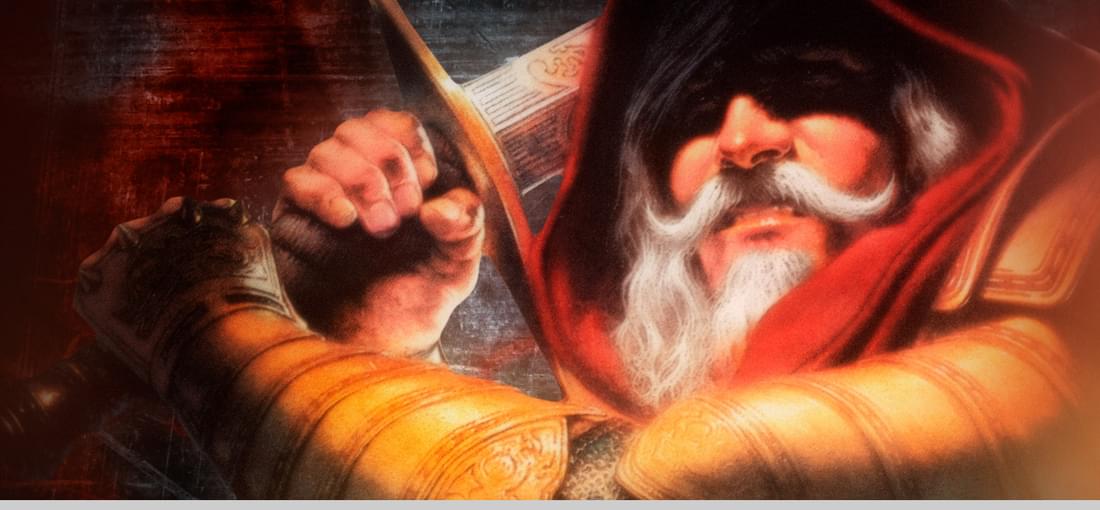


Why do I call this amazing gem a fantasy novel type RPG and not simply fantasy, you might ask. Simple - because its gameplay feels like playing through a good book, with an unbelievable degree of immersion. What made Keanu sad was the realization of how much time he wasted on that amateurish simulation when perfection had been available for years (and for free too). Now I know, the fantasy part sounds like the typical car salesman line of nearly any RPG ever made (Immerse yourself in a world of fantasy!). Now there are some amazing games for which this undeniably holds true - in Morrowind you have unprecedented freedom in an amazingly stunning environment, while in Baldur's Gate you can find the apex of the AD&D fantasy genre (yes, which excludes the best one ever - Torment) in terms of story, gameplay and enjoyment. Yet both games, radically different as they are, lack something which makes Krondor unique - being story driven. The contrast to Morrowind is obvious, since the game hardly has any plot story at all (but more than makes up for it with its atmosphere elements; all those lovably insane books are unforgettable). Baldur, don't get me wrong, has a great story, *and* excellent RPG gameplay. They are, however, separate. There are side quests, there is the main quest. In Krondor, the gameplay *is* the story. You are constantly progressing in the plot in the course of your travels, as strictly speaking, there are few true side quests. The beauty of it is, it feels free. The battle system is brutally realistic, hammering in the crucial importance of who gets the drop on whom. Your party does not survive on steel and magic - they require food rations to sustain them on their journey through the kingdom and beyond. While this might sound random and arduous, it is amazingly enjoyable for the realism it provides. Not for no reason does Tolkien spend a good deal of preparation narrative in The Hobbit on food supplies. Guiding a small band of endearing characters through the perils of a kingdom in an era of strife would just not be the same without having to think about food. Storywise, It puts you right in the midst of things with a limited perspective, and lets you gradually, sometimes coincidentally, discover more about the world you find yourself in. The lore is extensive and thought out, immediately betraying being the work of a master. All in all, the game is an experience and a marvel. Its "sequel" is not. I would say it did not deserve to share the praised name of its predecessor, were it not utterly deserving of having 'betrayal' in its title. While the treachery is mysterious in Krondor, it is immediately obvious who the betrayed one is in Antara - perhaps the first item the game lets you find should be a mirror. This abomination is a prime example of the tyranny of "progress" in the gaming industry - it improves on redundant or harmful facets while preserving little of the soul of the original. The story is as bland as could be imagined - an unlikely hero discovers hidden powers and embarks on a journey. Not that classics cannot be good, but here it comes across as cringeworthy cheesy. The graphics engine is "improved" - it is indeed smoother, but the surroundings have become ugly, the towns confusing, the movement vertigo-inducing. Not even combat has been spared - it is now smoother as well, but cartoonish, and not just slightly. When you behold what used to be a mighty fireball in Krondor having become a pitiful flying red worm, you know this is not a game you will ever love. Enemies outside of battle are now static figures, which I assume has to do with the "improved" engine. In krondor, your movement was dictated by steps. Whenever you encountered enemies, they would move with every step you took until you managed or botched sneaking up to them and battle was initiated. With the new smooth movement, there is no steps, so enemies just stand in certain places forever until you decide to fight them. It does wonders to make the world believable. They added voice acting because they could. As is ever the case with voice acting which is not done well, it does not help. No, I've had enough. Honestly. I could list the countless flaws, but basically all Antara is is part of the battle and world travel mechanics of Krondor. You might think that those were really good and another game, even a completely different one, utilizing them might be worthwhile in itself. Sadly, everything about it is so uninspired that all it ever does is point out the industry's fetish for "better" graphics, forced voice acting and lack of essence. All it ever does is scream its flaws at you. Its shallowness. Its betrayal.